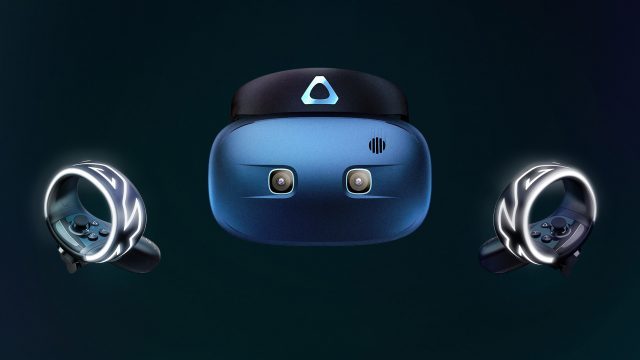HTC might have given a first look at their new Vive Cosmos headset today, but they weren’t ready to offer many details. The headset is said to be compatible with tether to a PC, but the company also teased that it could be powered by a smartphone too, all under the ‘Vive Reality System’ platform. That’s left some questions about whether or not the headset will interface with SteamVR.
While the Vive originated from a deep partnership between Valve and HTC, in recent years HTC has made moves to be less reliant on Valve’s SteamVR ecosystem. Both the Vive Focus and now the Vive Cosmos have ditched the SteamVR Tracking technology in favor of optical inside-out tracking, and HTC has been focusing heavily on building out its Viveport content platform to pull users away from the SteamVR content library.
So when HTC started talking about the ‘Vive Reality System’ (“a completely reimagined way for people to experience the virtual world—encompassing the total user experience from the moment a headset is put on to how content is interacted with,”) and didn’t mention Steam at all, it seemed like they were setting up the headset to be the start of their own, all inclusive ecosystem.
Executives were notably hesitant to talk about SteamVR compatibility for Cosmos when asked, but after some pressing, HTC has confirmed to Road to VR that Cosmos will be OpenVR compatible. Still the company company said it isn’t ready to talk about the “exact implementation.”
OpenVR is Valve’s open API that acts as the interface between VR hardware and software built against the OpenVR API. SteamVR is a runtime that implements OpenVR, which means that it’s interoperable with any OpenVR compatible headset. Because Cosmos is confirmed to support OpenVR, we know it’ll be able to run SteamVR too.


And even though Cosmos will technically support SteamVR, it sounds like HTC doesn’t want that to be the default condition. The company plans to launch the Vive Reality System alongside the headset, and with it they want to have end-to-end control of the entire customer experience.
Details are still thin on the ground, but from our conversations with the company, we’re getting the sense that the plan is for Cosmos to run the Vive Reality System out of the box, instead of SteamVR. The Vive Reality platform itself could be built as an OpenVR-compatible runtime, allowing HTC layer in its own functionality in place of SteamVR—like the Viveport store, social services, and the default homespace, ‘Origin’, which they talked about today.
They could also potentially expose any OpenVR applications (including those from Steam) from within Vive Reality, effectively allowing users to access their SteamVR content through Vive Reality, though perhaps only if the content doesn’t explicitly rely on any Steam services (like social frameworks) in order to function.
The goal for Cosmos, it seems, is for HTC to make SteamVR optional, but not required, while Vive Reality stands in as the defacto platform.
For now, HTC doesn’t want to get into details, so we’ll have to wait to hear more about how it all comes together by the time Cosmos and Vive Reality launches later this year.

